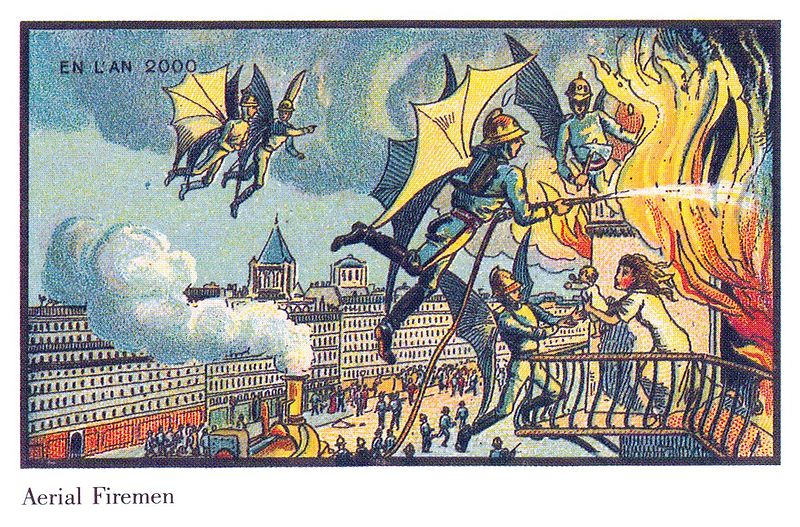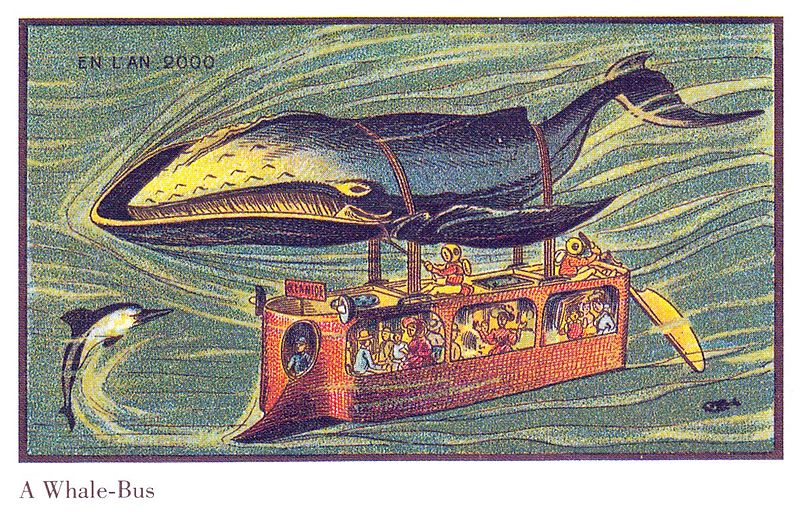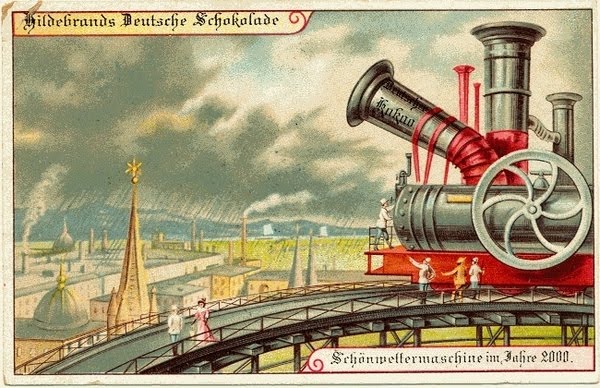“X-Rays will prove to be a hoax”
Being a scientist predicting the future must be a tough job. In fact, I am not sure why anyone would want to make specific predictions – the chances of you being 100% accurate are quite dismal. In fact, some predictions are just down-right funny now.
Some of my favorites are from futurists in the late 1800’s who combined the burgeoning scientific discoveries of the time with a vivid imagination to make predictions of the future. A number of outlandish predictions from around the turn of the 20th century were immortalized in a series artist’s renderings by France and Germany to entice public excitement over the coming new century. My favorites are the Airborne Firefighter’s, the Whale-Bus, and the Weather Control Machine



Well regarded scientists have not been immune to ill-fated theories. Even the great Einstein, for instance, applied his own Theory of General Relativity to the universe and was convinced that the universe was static, until after decades of fierce debates with other great scientists he was proven wrong by Edwin Hubble’s discoveries. Dr Dionysys Larder, a well regarded Irish scientist who made important contributions to mathematics, physics, and hydrostatics is now most famous for his theory of human transport limitations:
“Rail travel at high speed is not possible because passengers, unable to breathe, would die of asphyxia”
One of the most widely debated theories of our day, in fact, has its roots in the heady days of the late 19th century: Climate Change. Svante Arrhenius, a Nobel prize winning scientist, known as one of the founders of physical chemistry, established theories describing the greenhouse effect of Earth’s atmosphere. In 1896 he predicted that the use of fossil fuels would increase the atmospheric concentrations of CO2 and that a doubling of CO2 would result in a 5 degree average temperature increase.
I can prove to you that Svante’s global warming predictions were wrong. In fact, you can watch the video here to see for yourself. Applying his predictions to the CO2 concentrations that have accumulated over the intervening years, the temperature should have increased globally around 1.6 degrees Celsius. You can see for yourself here and here that Svante’s predictions were a full 0.8 degrees Celsius (1.4 F) off. Disgraceful.
Let’s compare Svante’s 120 year climate forecast with today’s high-technology weather forecasts. In an exhaustive study of the accuracy of weather forecasts, Josh Rosenberg, illustrates that “Accuweather forecasts 8 days out were an average of 7.5 degrees off. 7 days out, they were an average of 5.8 degrees off.”
We should be fair to meteorologists, though, and point out that three-day forecasts tend to be within 85% reliability and their indications of likelihood of precipitation are, statistically, dead-on . Just because their long-range predictions are horrible is no reason to ignore their advice. Thankfully – we do not! When our phone app’s tell us we should expect rain, only the dullest among us do not bring rain gear with them when they leave the house.
The same should be said of Dr Arrhenius’ advice. The prediction he made 119 years ago with only the power of his intellect and a slide rule has proven to be more accurate that the predictive capabilities of immensely sophisticated weather modeling systems drawing on terabytes of contemporary computing capacity.
The global warming prediction made 119 years ago is 5 degrees more accurate than modern 7 day weather forecasts.
Perhaps it is time for us to stop arguing over the validity of greenhouse physics and begin to address the changes our society should make in the face of current and pending climate change. The effort, and investments, we continue to put into stoking fossil fuel energy should be brought to an end. Those resources should be redirected by us individually and collectively into the development and advancement of renewable energy.
It is time for us to make change personal!


